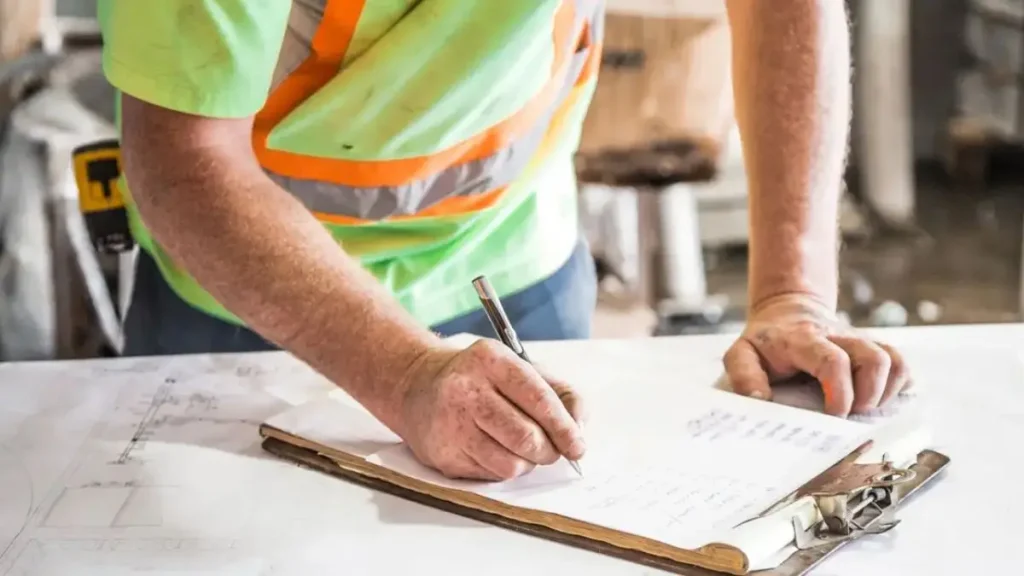Contractor Scams Uncovered: What Every Homeowner Should Know
I’ve heard too many stories like this lately—but this one hit different.
Imagine hiring someone to fix your home, handing them nearly forty grand, and then watching them vanish. That’s exactly what happened to Nina and Ethan Keedy in Pennsylvania. What started as a simple home improvement project turned into a nightmare that cost them $37,750 and a whole lot of peace of mind.
This isn’t just one bad contractor. It’s part of a growing pattern in Pennsylvania—more homeowners are getting scammed, and most of them never see justice or their money again.
That’s why I wrote this.
Not just to tell you what happened—but to walk you through how these scams work, why they keep happening, and what you can do to make sure it doesn’t happen to you or someone you love.
And if you’ve already had a close call—or worse, got burned—stick around. I’ll also show you how others are fighting back, what your rights are, and how to spot the red flags before it’s too late.
The Nicholson Case: A Deep Dive into the $37,750 Fraud Allegation
Let me break down what happened in this specific case—because the details matter, especially if you’re trying to protect yourself from something similar.
As per a report of CBS News, Nina and Ethan Keedy, a couple from Fayette County, thought they were hiring a trustworthy contractor named Andrew Nicholson. They paid him a whopping $37,750 up front for a major home improvement job. But instead of showing up to work, Nicholson gave them nothing but excuses—and eventually, silence.
They weren’t the only ones. Another family, the Clarks, came forward with a similar story: bounced checks, broken promises, and thousands of dollars gone.
The local police and the District Attorney’s office have now charged Nicholson with theft by deception and writing bad checks. The charges are serious—and officials believe there may be more victims who haven’t spoken up yet.
If that’s not alarming enough, here’s the kicker: Nicholson is still being investigated, and law enforcement is urging anyone else affected to come forward.
This is more than just a financial loss—it’s emotional, stressful, and it leaves people questioning their judgment and safety in their own homes.
The Bigger Picture: Contractor Fraud Across Pennsylvania

Nicholson’s case isn’t a one-off. Sadly, it’s part of a wider trend across Pennsylvania—and the numbers are stacking up fast.
Just last year, the PA Attorney General filed a lawsuit against another contractor, Jeffrey Romansky, for doing shoddy work and hiding his criminal history from clients. That guy allegedly left multiple homes in worse shape than when he started.
In another case, Jared Wyllie was sentenced to at least three years in jail for taking over $156,000 from homeowners without completing a single job. He promised renovations, took their money, and disappeared.
There’s a clear pattern here:
- Large up-front payments
- Fake business names or expired licenses
- Disappearing contractors
- Empty promises and zero accountability
If you think this couldn’t happen to you—think again. These scammers don’t just target people who are careless. They go after busy families, the elderly, and even savvy homeowners who just didn’t see the red flags.
We’ll dig into those red flags soon—but first, let’s understand why these scams keep working, even when the warning signs are all around.
Understanding the Psychology: Why Homeowners Fall Victim
You might be thinking, “How does someone just hand over tens of thousands of dollars without guarantees?” But here’s the truth: it’s not about being naive—it’s about being human.
Scammers like Nicholson don’t start with deception. They start with charm, confidence, and timing. They know how to make you feel like you’re getting a great deal—and that you’d better act fast before it’s gone.
They show up on time for the first meeting. They talk technical, drop references, maybe even show fake portfolios. They create urgency: “Prices are going up next week,” or “I’m booking out fast.” That’s when people hand over deposits—and that’s when things start going quiet.
The other trap? Trusting verbal agreements. Many homeowners don’t know what a legally binding contractor agreement looks like, or what kind of license a contractor legally needs to have in Pennsylvania.
And when the work doesn’t start or the excuses pile up, you don’t always jump to the worst conclusion. You want to believe the person you hired will come through.
That’s the psychology behind this: scammers build trust just enough to disarm your skepticism. And once they have your money, you’re left chasing accountability that doesn’t exist.
Protecting Yourself: Tips to Avoid Contractor Scams

Here’s where we flip the script.
If you’re planning any home project—even something small—these are the non-negotiables you need to know before hiring anyone.
1. Always Verify Licensing
Every contractor doing work over $5,000 annually in PA must register with the state. You can check this at the PA Attorney General’s site. If a contractor avoids giving you their license number, that’s your first red flag.
2. Demand a Written Contract
It should clearly outline:
- Total cost
- Payment schedule
- Materials to be used
- Start and end dates
- Warranty terms
Never rely on “we’ll figure it out later” agreements.
3. Never Pay the Full Amount Upfront
A legit contractor will ask for a deposit (usually no more than 30%). Anything more is risky. Use milestone-based payments—tie them to actual work completed.
4. Ask for References—and Call Them
Don’t just read testimonials. Ask for 2–3 past clients you can speak to directly. A fraudster will dodge this every time.
5. Watch for These Red Flags
- High-pressure sales tactics
- “Cash-only” payment demands
- Refusal to put things in writing
- No physical business address
- A too-good-to-be-true quote
And if you’re unsure—get a second opinion. That one step could save you tens of thousands.
Voices from the Community: Social Media Reactions
When local news about contractor fraud spreads, social media becomes a place where real people speak up—and sometimes, more victims come forward.
On X
Journalist Jennifer Borrasso shared a field report video about the Nicholson case. Her tweet highlighted the police investigation and included visuals from Uniontown, where some of the alleged fraud took place.
This kind of post builds awareness in real time and helps more potential victims recognize the scam pattern.
On Reddit
In the r/pittsburgh subreddit, users discussed a local news report covering the case. The thread includes reactions from people frustrated with repeat contractor scams in the area. There’s a strong focus on how law enforcement and consumer protections could improve.
On Facebook
WMBS Radio, a Uniontown-based station, shared a post linking to the CBS News article. The comments section reflected strong local engagement—people tagging each other, discussing the issue, and expressing concern.
These reactions might not always make headlines, but they show us one thing clearly: people are paying attention. And many of them have their own stories—or fears—that mirror what happened to the Keedys.
Conclusion
If there’s one thing I hope you take away from this—it’s that contractor fraud doesn’t just happen to “other people.” It happens to smart, careful families who simply trust the wrong person at the wrong time.
What happened to the Keedys isn’t rare anymore. Stories like theirs are becoming the new normal—and that’s exactly why we can’t afford to stay silent or uninformed.
Whether you’re planning a renovation, already in talks with a contractor, or just keeping this in mind for the future—protect yourself before the money moves. Ask questions. Demand paperwork. Trust your gut. And never pay a large sum up front, no matter how convincing someone sounds.
This article isn’t just about a bad actor. It’s about a system where bad actors are slipping through, again and again. And the only real shield homeowners have right now—is knowledge.
Have you or someone you know experienced contractor fraud? Drop a comment. Your story might help someone else avoid becoming the next headline.
Disclaimer: This article is for informational purposes only and not legal advice. All case details are based on publicly reported sources. Please consult legal authorities or professionals if you believe you’ve been affected.


